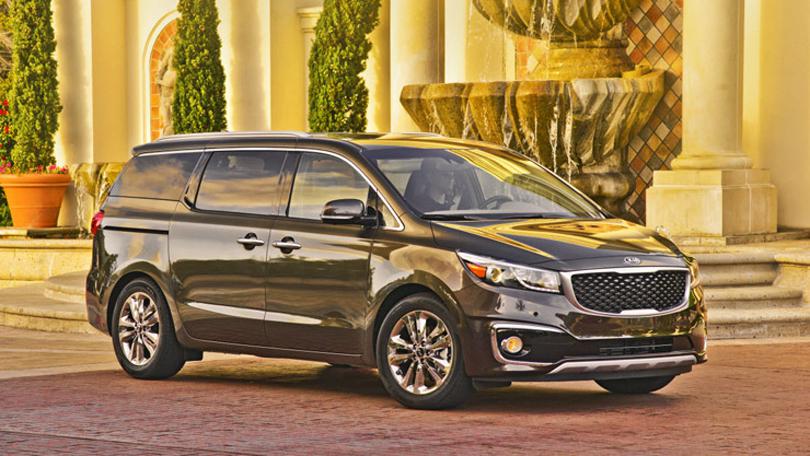Automoblog Book Garage: 100 Years of Dodge
In 1900, John and Horace Dodge founded Dodge Brothers in Detroit, Michigan. They jumped into the hybrid of the emerging auto industry and attracted the attention of Olds Motor Company and Ford. Dodge trouble later became Ford's exclusive supplier, but this relationship has never been the case.
“I am tired of being carried around in Henry Ford’s vest pocket,” declared John Dodge in 1913.
In November of that year, “Old Betsy,” Dodge’s first car off the assembly line showed they had no intentions of being confined to anybody’s pocket.
Their first dealer in Tennessee was established a short time later as orders started coming into Detroit. The legacy was building but sadly, the Dodge Brothers see only a portion of their success.
By 1938, Dodge adopted a completely steel body with a full-steel roof panel to replace the conventional wood-and-fabric insert that had been standard industry practice.
The command car underscores the versatility of the Dodge wartime truck lineup.
With a new grille and pontoon-style front fenders, the Dodge Luxury Liner Deluxe was the last major redesign before World War II. When postwar production resumed, the same design was used with just minor trim changes.
That Thing Got A Hemi?
Author
Dodge 100 Years Gallery
That Thing Got A Hemi?
Dodge 100 Years chronicles the Dodge journey, from the lavish lifestyles of the brothers to their technical innovations. Dodge is examined across generations, from the purchase of Chrysler, to their role in the Arsenal of Democracy; from the leadership of Lee Iacocca, to designing iconic vehicles like the Caravan and Viper.
Dodge even found its way to Hollywood.
But more importantly, Dodge found its way into our homes; be it through President Roosevelt’s rallying call to action, our insatiable love for horsepower, or our desire to transport loved ones in safety, Dodge has forever etched its name in the annals of both automotive history and our hearts.
The 1969 Dodge Charger R/T. The R/T has starred in numerous movies and television shows over the years—one of its most notable roles being the General Lee in The Dukes of Hazzard.

Author
Matt DeLorenzo is a longtime automotive writer and enthusiast. DeLorenzo has been Editor of Autoweek, a staffer at Automotive News, and both Detroit Editor and Editor-in-Chief at Road & Track magazine. He is an original member of the organizing committee for the North American Car and Truck of the Year awards.
DeLorenzo’s telling of the Dodge story is done brilliantly and boldly, with no detail missed. When you finish the book, you will be glad you have a Hemi . . . or you will be like me and questioning why you don’t.
Dodge 100 Years is available through Motorbooks or Amazon.
*Carl Anthony is Managing Editor of Automoblog and resides in Detroit, Michigan.
Dodge 100 Years Gallery
The touchstones for the essence of the Dodge brand are the Challenger (left) and Charger (right). These models are designated to carry the division’s special 100th anniversary edition packages, were produced in 2014.
The Dodge Charger III was a 1968 styling exercise that tested the waters for a possible Corvette rival. The frontengine, rear-drive 2-seater had a pop-up canopy that provided access to the cockpit.
The modern Challenger recalls its classic muscle-car roots.
This wagon version of the 1948 Power Wagon is the forerunner to the modern full-size SUV.
The 1960 Dodge Dart put a fitting finish on the excesses of the ’50s. Slightly smaller (but not by much), the Dart had vestigial tailfins. Within two years, the fins would be gone forever.
The trucks in the A-100 line were primarily built as cargo and passenger vans, but there was also a pickup among them. This ’64 model shows why the vehicle is called “forward control”: most of the cab is ahead of the front wheels.
Though still based on the full-size Dodge chassis, the Dart continued to be downsized and took on a much smoother body with flowing character lines.
The Dodge Main assembly in 1916 adopted the moving assembly line pioneered by Henry Ford at his nearby Highland Park plant. Inset: Cars await shipment from Dodge Main. Dodge Brothers used steel bodies and enamel paint that could be cured in ovens, significantly shortening the time it took to produce cars.
Dodge 100 Years by Matt DeLorenzo
*Last week at the Book Garage on Automoblog we checked some incredible car art work.
-
Latest
 Mercury Extended Warranty Review (2021)
Mercury Extended Warranty Review (2021)Mercury Extended Warranty ReviewIn Our Opinion:Mercury extended warranty plans must be purchased upfront, but if you can afford to pay in a lump sum, they’re a great option for vehicle protection.Indu...
-
Next
 2016 Kia Sedona SXL review
2016 Kia Sedona SXL review2016 Kia Sedona SXLProsCabin ComfortAvailable FeaturesConsFuel EconomyCargo Capacity93Very GoodWe know that minivans get a bad rap and most of it is justified. But when was the last time you sat in a...
Popular Articles
- The Canadian government invests in the first Canadian-made electric car
- Stellantis strengthens electrification
- 2022 Ford Maverick debuts
- The Canadian government requires 100% of Canadian car and bus sales to achieve zero emissions by 2035
- Extend electric car rebates to businesses and non-profit organizations BC
- New general manager of ADESA offices in the U.S. and Canada
